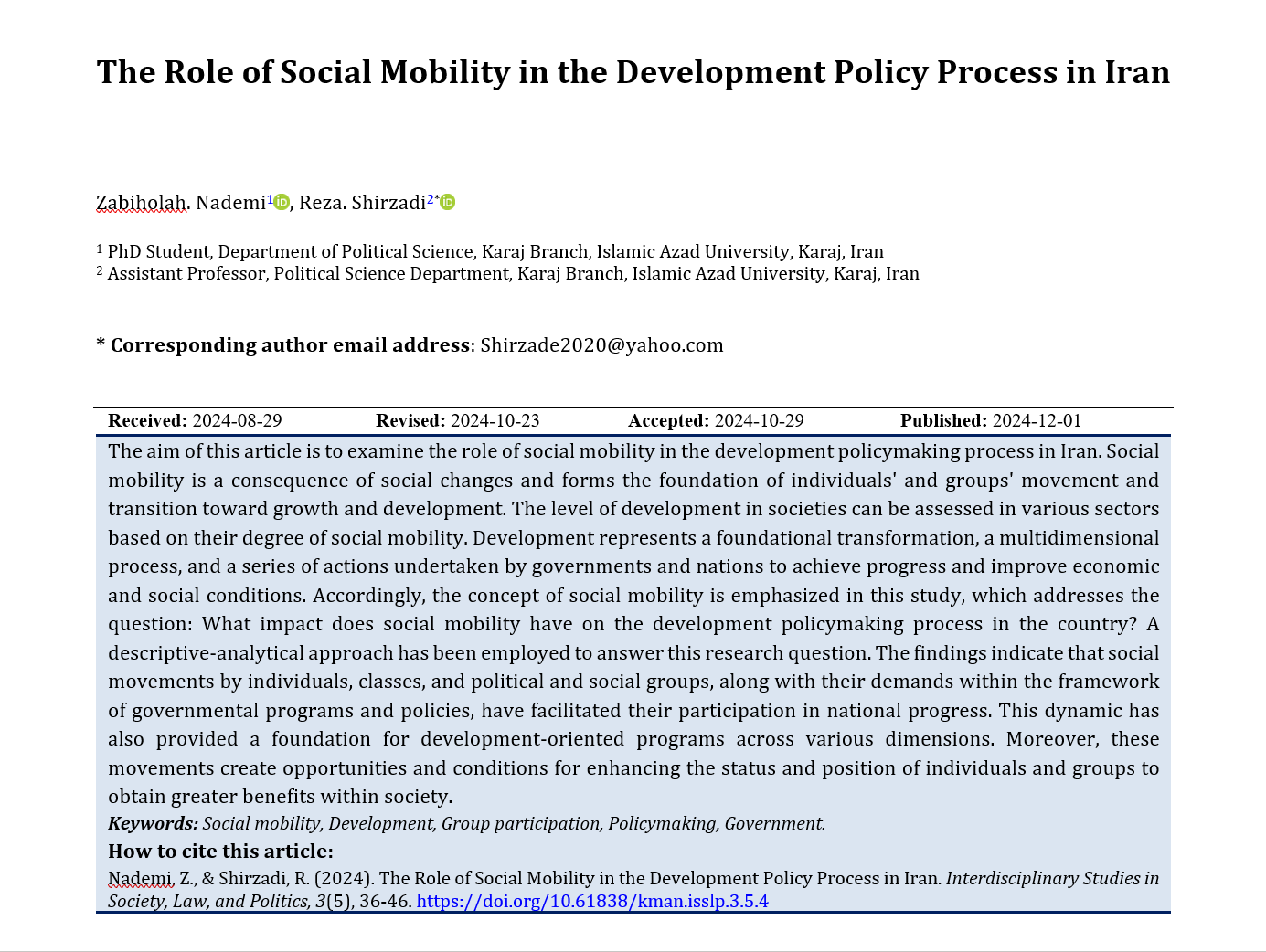The Role of Social Mobility on the Process of Development Policies in Iran
Keywords:
social mobility, development, group participation, politicymaking, governmentAbstract
The aim of this article is to examine the role of social mobility in the development policymaking process in Iran. Social mobility is a consequence of social changes and forms the foundation of individuals' and groups' movement and transition toward growth and development. The level of development in societies can be assessed in various sectors based on their degree of social mobility. Development represents a foundational transformation, a multidimensional process, and a series of actions undertaken by governments and nations to achieve progress and improve economic and social conditions. Accordingly, the concept of social mobility is emphasized in this study, which addresses the question: What impact does social mobility have on the development policymaking process in the country? A descriptive-analytical approach has been employed to answer this research question. The findings indicate that social movements by individuals, classes, and political and social groups, along with their demands within the framework of governmental programs and policies, have facilitated their participation in national progress. This dynamic has also provided a foundation for development-oriented programs across various dimensions. Moreover, these movements create opportunities and conditions for enhancing the status and position of individuals and groups to obtain greater benefits within society.
Downloads






